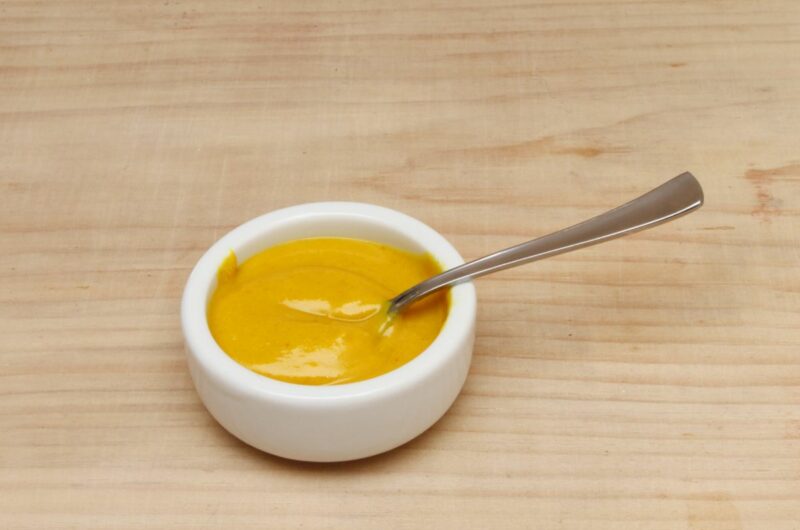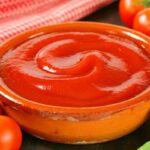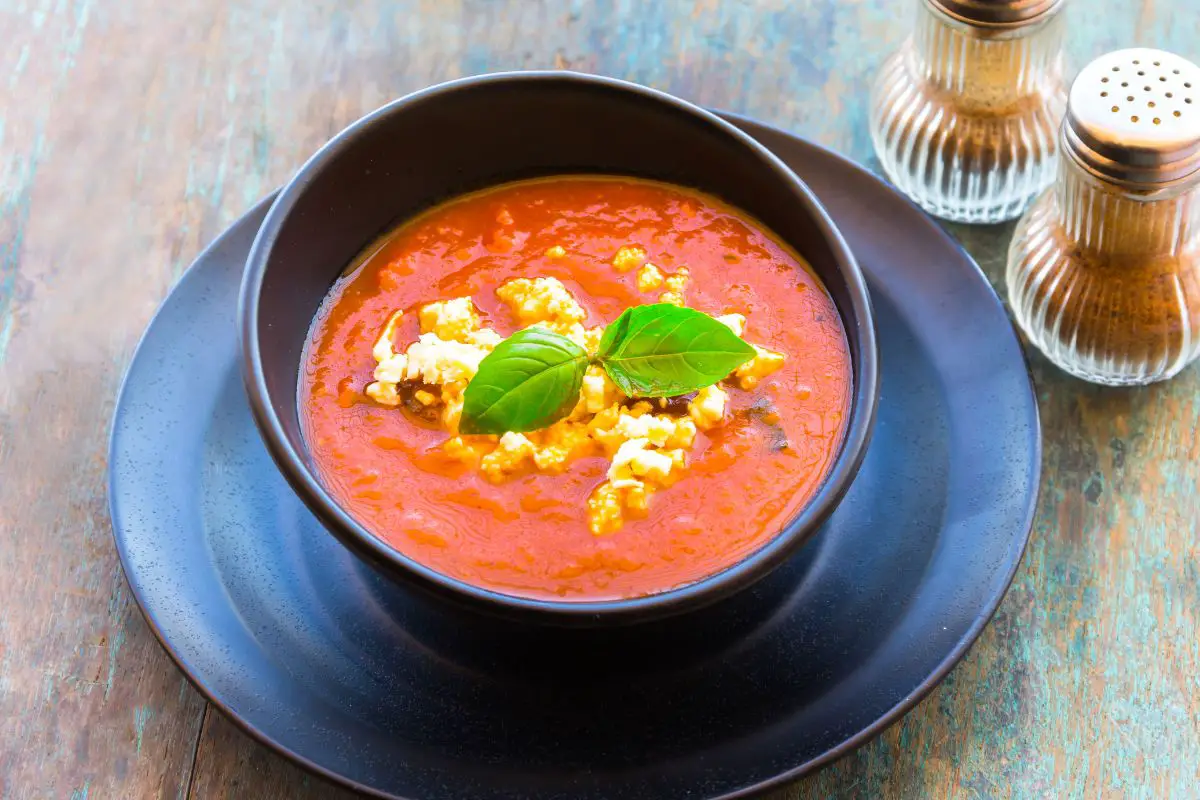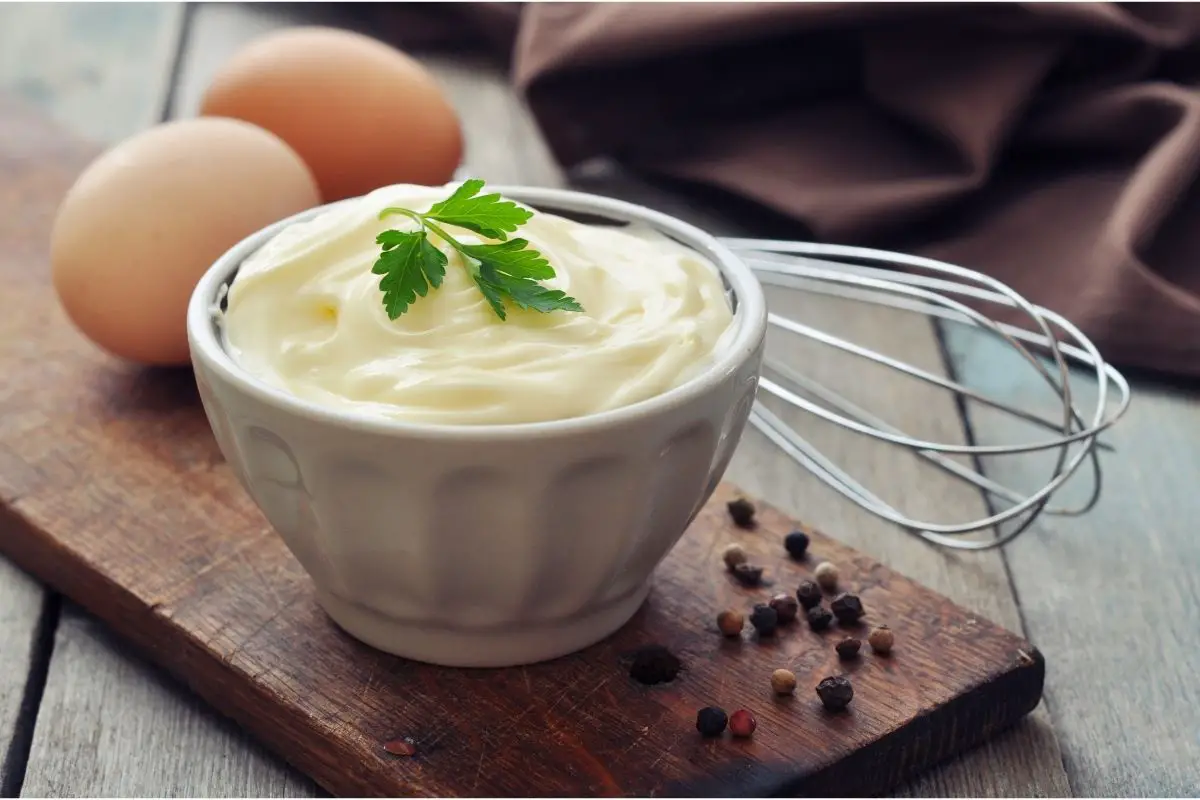English mustard has one of the most distinct flavors that you’ll find in the world of condiments. Sure, everyone might have a different flavored sauce, like tomato, mayo, or BBQ, that is their favorite.
But if you’re looking for a condiment that can clear your sinuses while providing plenty of flavors, then arguably few even come close to the power that English mustard has.
This makes it all the more frustrating when a recipe that you’re trying out calls for it, and you can’t find any in your pantry!
Don’t freak out, however. While English mustard is a tough item to replace in your cooking, it is not impossible. There are substitute ingredients that you can use if you know where to look.
This is where our list comes into the picture!
Here, not only will we show you what exactly makes English mustard such a popular ingredient, but we’ll also share with you a list of substitutes that share those amazing qualities too!
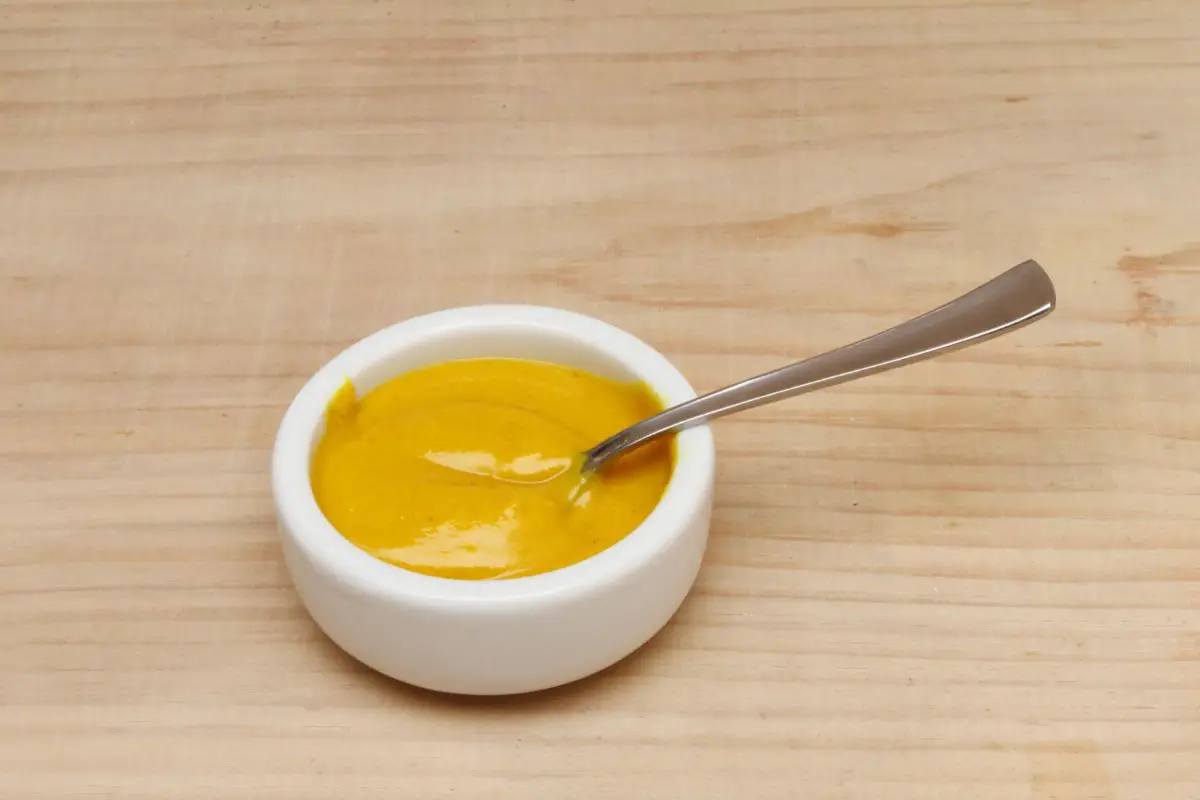
What Is English Mustard?
Before we get stuck into this list of hot condiment replacements, we should first take a look at what makes English mustard so popular.
After all, you want to know exactly what you’re looking for in a substitute, don’t you?
English mustard is a mustard that usually comes in a dry, seeded form, or a crushed, powdered form.
These forms are then usually mixed with some kind of vinegar, mustard seeds, and some type of spice, creating a condiment that has a fiery-hot taste to it.
Although there is no concrete origin for where or when English mustard came from, it is widely believed that English mustard started being used in standardized recipes towards the end of the 18th century.
English mustard has been known for its herby, tangy flavor, it is a famously hot flavor that has a sharp, powerful hit to it, alongside its mixed texture of both smooth and rough grains.
While its zesty flavor is loved by many people, the sharp hotness of English mustard means that many people are split on whether or not they enjoy it.
So, if you’re looking for a good replacement, either because you have no English mustard in your kitchen, or only want to replicate one or a few of its qualities, then it will need to have at least one of these aspects.
1. Dijon Mustard
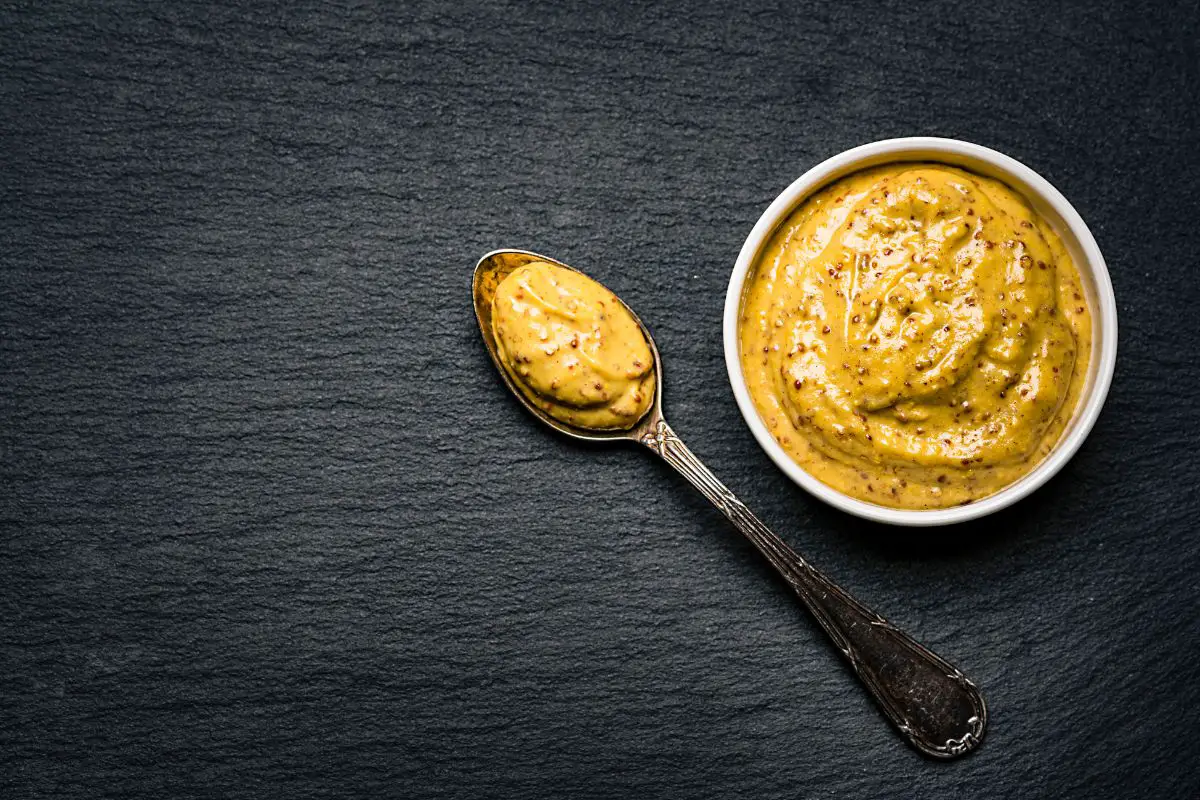
Starting with arguably the closest substitute to English mustard, we have the world-popular Dijon mustard.
Dijon mustard is typically made from brown mustard seeds that have been mixed with white vinegar and wine, salt, and water.
As you can imagine, the resulting concoction has quite a powerful flavor to it, being pungent and zesty once it has touched your taste buds, very similar to English mustard in this way.
However, people with a low spice tolerance will be pleased to know that Dijon mustard is noticeably less spicy than English, making it a great substitute for just its flavor, and no spice to it.
Dijon mustard can be added at the same ratios to a recipe that English mustard would be, making it a very convenient ingredient for cooking with, too.
Dijon mustard can come in a rough form, where the mustard seeds are still visible, or a smooth, slightly brown, and yellow form as well, depending on how it was made.
2. Horseradish
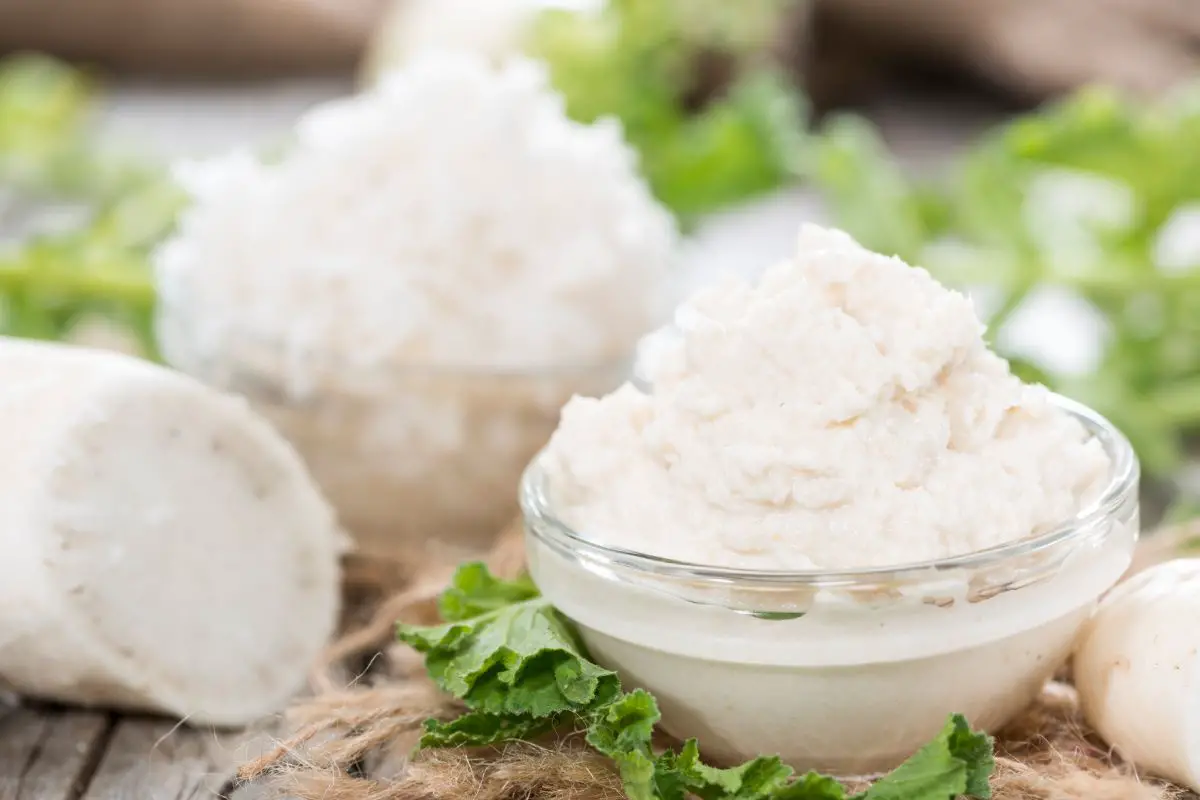
If a spicy hit is a thing you’re looking for in your English Mustard substitute, then you should consider finding some
Horseradish is a root vegetable, rather than a seed like many mustard varieties are.
When properly prepared, horseradish sauce is known for having an incredibly strong heat flavor to it, like a very strong English mustard or Wasabi sauce, making it a very popular item to eat alongside mellow, tender meat recipes.
It should be noted that although it is prized for its hot and spicy flavor, horseradish loses most of its hot flavor as soon as it is heated as part of a cooking process, so you can’t substitute it in place of English mustard.
It is more a condiment than a cooking ingredient, so keep that in mind if you want to use this root vegetable.
However, if it’s a spice you want in your recipe, then fresh horseradish will do that job nicely!
3. Spicy Brown Mustard
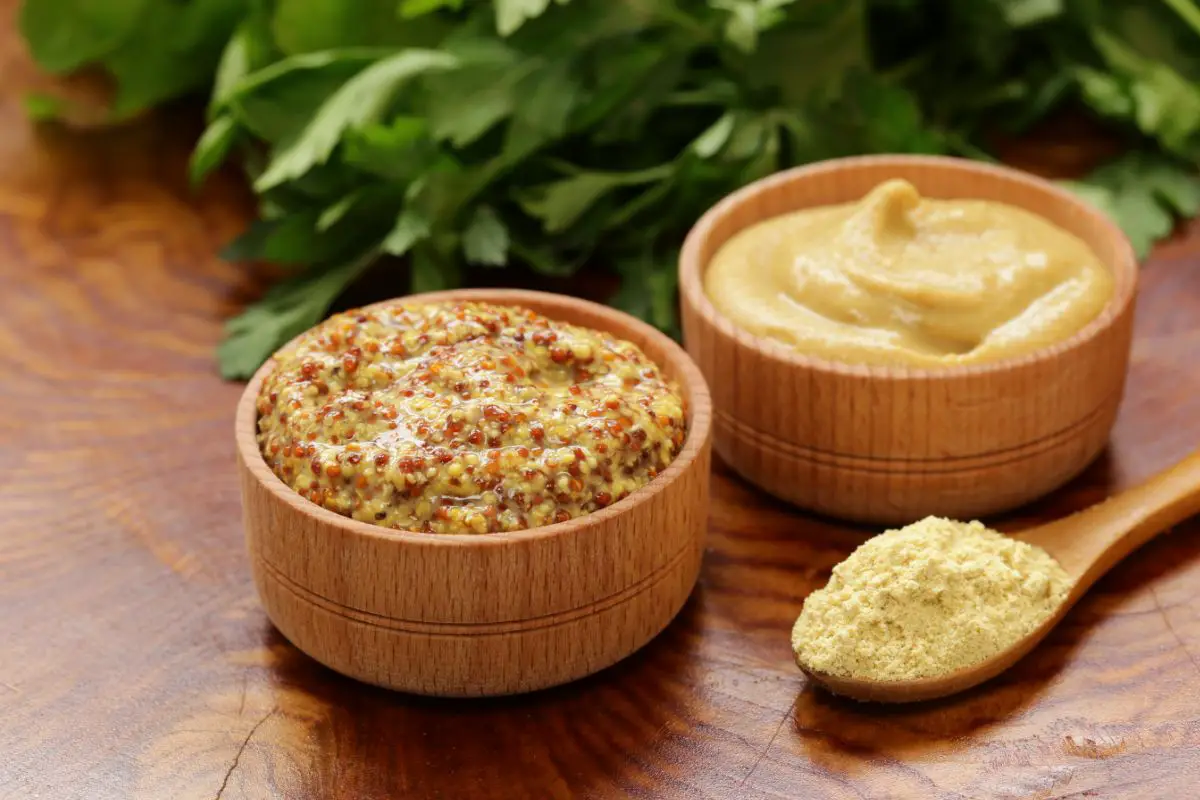
Now, if you love Dijon mustard, but need something a little spicier when it comes to a good substitute, then you’ll want to try finding or making some spicy brown mustard sauce.
As the name implies, spicy brown mustard is made from brown mustard seeds, arguably one of the spiciest varieties of mustard out there.
However, instead of the more flavorful and pungent ingredients like white wine and vinegar that go into Dijon, spicy brown mustard is mixed with spices like cinnamon and ginger.
This gives spicy brown mustard a sensation that is less flavorful than Dijon in many ways but also kicks up the spiciness to 11, making it a great substitute for English mustard, which it is comparably hot to.
4. Yellow Mustard
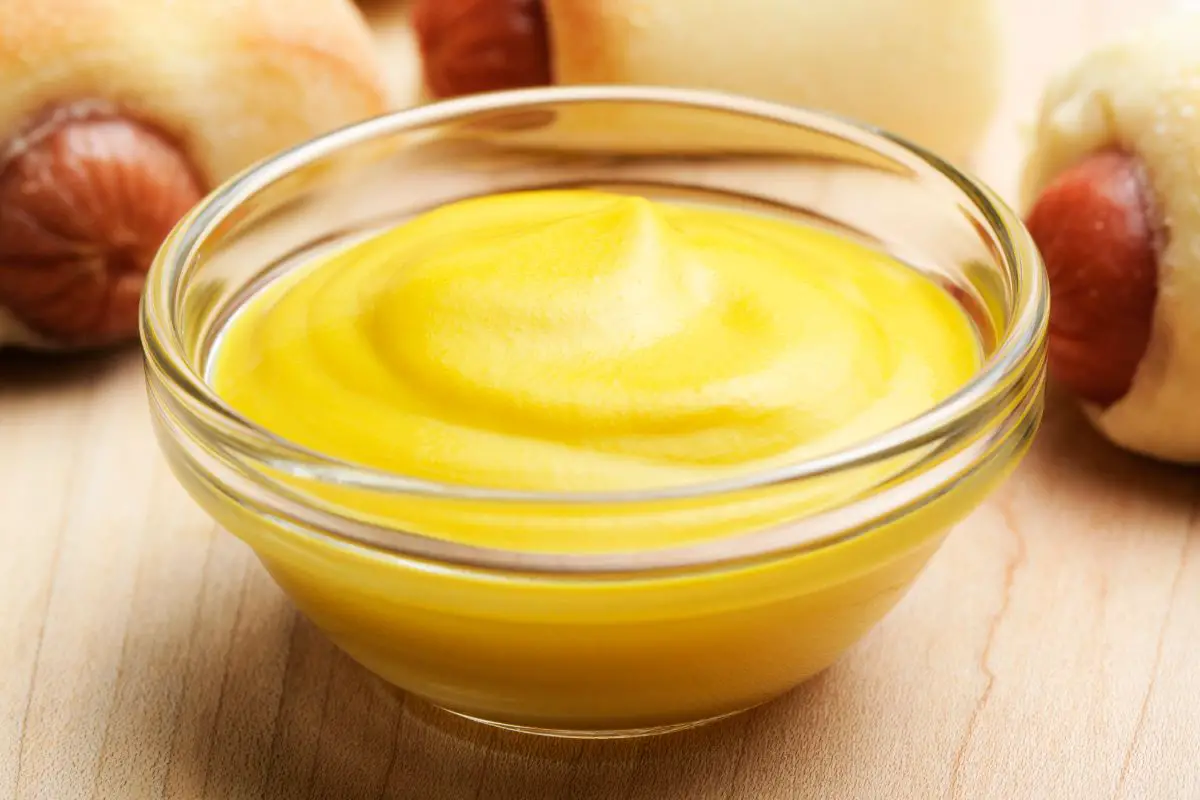
Yellow mustard is considered one of the mild varieties of mustard, making for an English mustard substitute with brighter flavors, and less overall heat to it.
As their name suggests, yellow mustard seeds are the primary ingredient for this condiment, which is then mixed with many similar ingredients to Dijon mustard, such as vinegar and salt, as well as a little lemon juice too.
The result is a mustard that has a strong flavor, with relatively little overall heat to it, making it perfect for people that want to make recipes with a more mild palette in mind.
(Of course, this is still mustard, so there’s still a little bit of heat to it, so don’t go feeding this to anyone that thinks that the height of their spice tolerance is milk!)
Plus, the creamier texture that yellow mustard is often served with makes it a very different experience when letting it sit in your mouth. One that is a treat to enjoy, in our eyes!
5. Creole Mustard
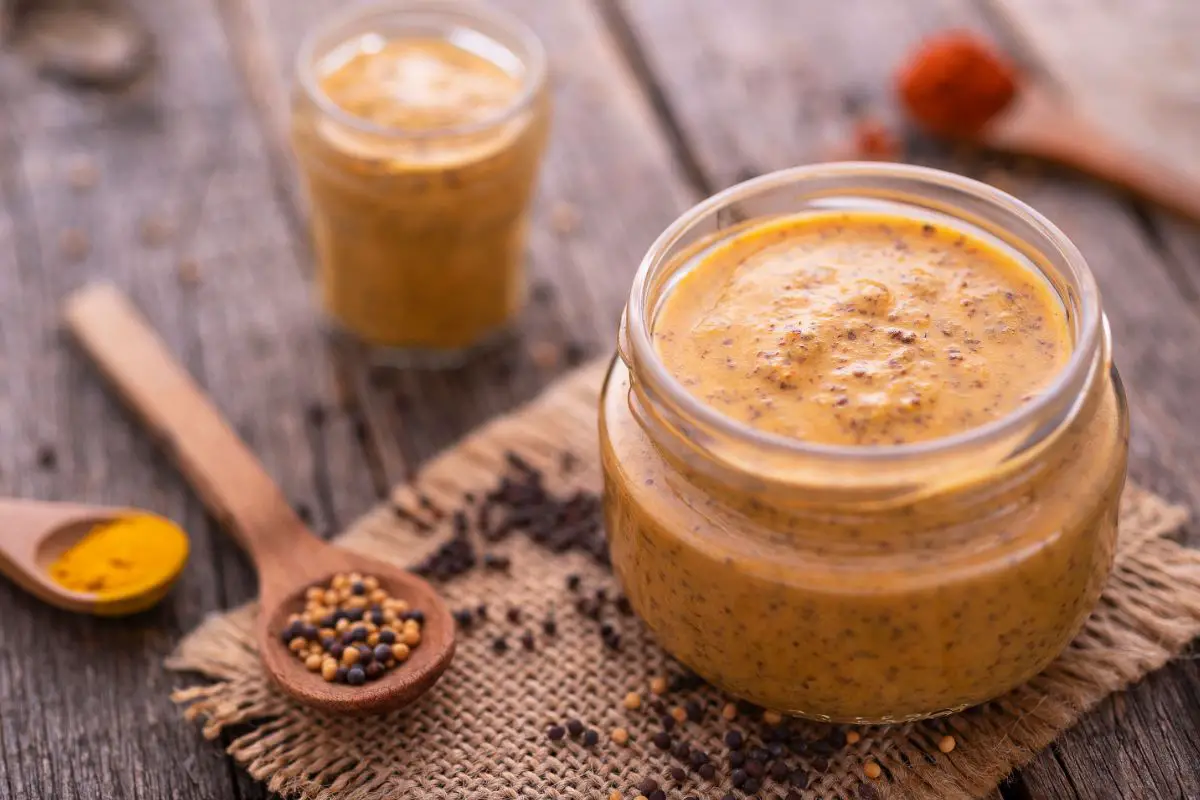
Most people will likely have at least heard of Creole mustard. But surprisingly few people have eaten this mustard as part of a meal.
Creole mustard is made by mixing crushed brown mustard seeds with a ton of other spicy ingredients, such as horseradish, turmeric, vinegar, and plenty of other spices.
The result is a mustard that has both a powerful flavor it that is sweet and spicy, and a heat that makes it the perfect condiment to substitute English mustard for an even amount
6. Wasabi
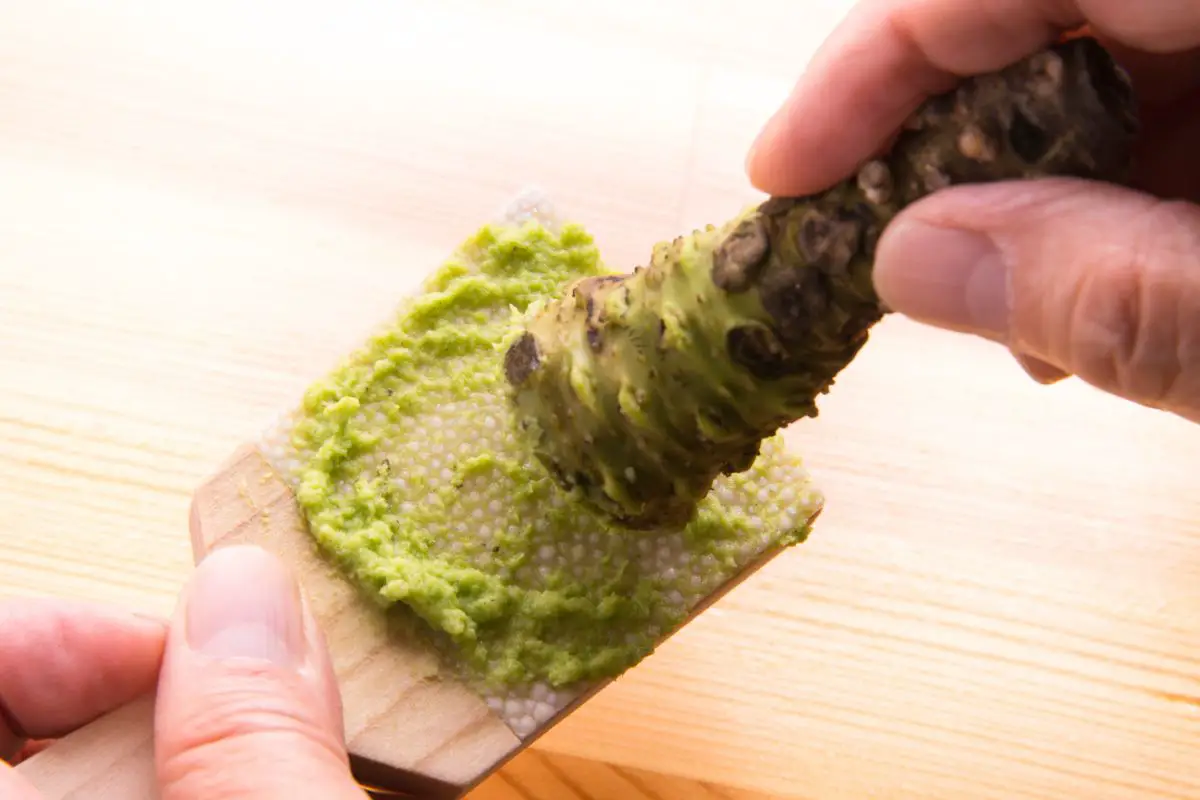
There may be a few of you reading this guide and raising your eyebrows a little at this next entry.
After all, Wasabi and mustard feel worlds apart, both in flavor and literally in this case! How can it be a good substitute for English mustard?
Well, with that distinct heat, wasabi makes a very good comparable ingredient to English mustard.
Being part of the same family of vegetables as horseradish, wasabi is best known for its sharp heat that it has when eaten, along with a slightly herby aftertaste to it.
Because of its similarities to horseradish, it can often be used in place of horseradish in many recipes and meals, including in some places where you may want to use English mustard.
It should be noted that wasabi can be quite difficult to source for yourself, as well as losing a lot of its heat when heated up like horseradish, so try to not cook hot foods with it.
Final Thoughts
So, there you have it!
English mustard is a very robust ingredient that can be used for a variety of different culinary purposes.
And while that can make it quite difficult to find a single condiment that perfectly replaces everything it does, it also means that you can find many that have a few of the same things in common, whether that’s heat, texture, color, or flavor.
6 Best English Mustard Substitutes
Course: Substitutes4
servings30
minutes40
minutes300
kcalIngredients
Dijon Mustard
Horseradish
Spicy Brown Mustard
Yellow Mustard
Creole Mustard
Wasabi
Directions
- Decide on what substitute you need
- Pick a substitute from the list above
- Read what you need to substitute with
- Create the recipe and enjoy
Recipe Video
- What Exactly Do Chickpeas Taste Like? Is There A Distinct Flavor? - September 30, 2023
- Top 11 Low Carb Options at Sonic Drive-In for Keto Diet - September 30, 2023
- What Should You Serve Alongside Potato Salad? 8 Incredible Side Dishes - September 30, 2023

